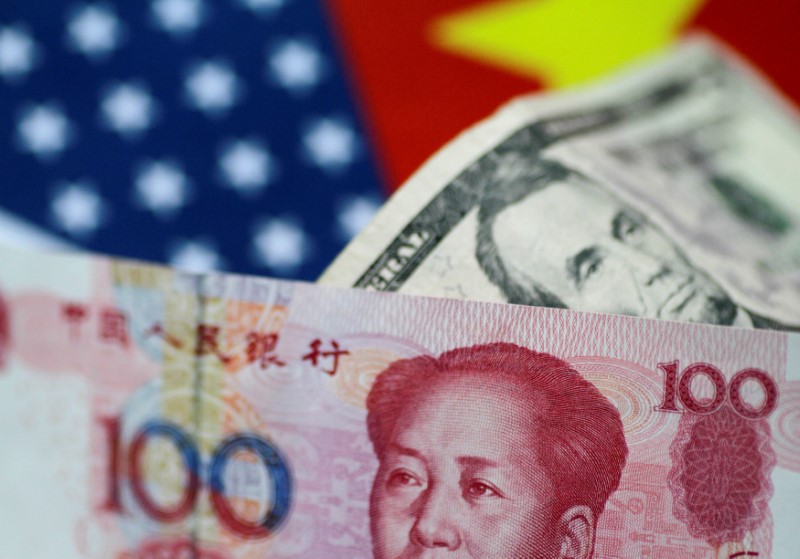Investing.com-- Most Asian currencies kept to a tight range on Thursday tracking weak economic signals from China, while the dollar steadied from recent losses as markets awaited a key inflation reading due later in the day.
The Chinese yuan strengthened slightly after a stronger midpoint fix from the People’s Bank of China. But purchasing managers index data showed a sustained decline in manufacturing activity, as China’s biggest economic engines struggled with worsening overseas demand.
The reading highlighted continued weakness in the Chinese economy, as a post-COVID rebound failed to materialize.
But steady PBOC support, coupled with a less hawkish outlook for the Federal Reserve saw the yuan set for a 2.6% gain in November. The currency also remained close to a five-month high against the dollar.
Other Asian units moved little on Thursday as a weeks-long rally in regional currency markets now appeared to be winding down. But most regional units were set for stellar gains in November, as markets grew convinced that the Fed will raise interest rates no further.
The Japanese yen rose 0.1%, taking little support from data that showed retail sales grew less than expected in October, while industrial production remained muted.
Still, the yen marked a sharp recovery from near 33-year lows in November, and was set to rise 3% in the month, its best monthly gain since November 2022, when the government had intervened in currency markets.
The Australian dollar rose 0.4%, buoyed by data showing a rebound in building approvals through October. But Australian capital expenditure remained weak in the third quarter.
The Australian dollar was set to nearly 5% in November, and was trading close to a four-month high.
The South Korean won fell slightly on Thursday as the Bank of Korea held interest rates steady, as widely expected. But weak industrial production and retail sales data pointed to sustained weakness in the South Korean economy.
Still, the won was on course for a 4.5% jump in November.
The Indian rupee was the sole outlier among Asian currencies in November, and was set for a muted monthly performance after sinking to record lows earlier. The currency was battered by increased domestic demand for dollars, as well as concerns over the Reserve Bank’s dwindling dollar reserves.
Indian GDP figures for the September quarter were due later in the day, and were expected to show sustained growth in the fastest-growing major economy.
Dollar steadies near 3-½ month lows, PCE inflation data awaited
The dollar index and dollar index futures moved little in Asian trade on Thursday, after recovering slightly from their lowest levels since mid-August. But the greenback was still set to lose 3.6% in November- its worst month in a year.
Softening U.S. inflation and signs of a cooling labor market drove steep losses in the dollar through November, amid growing conviction that the Fed was done hiking rates. Markets were now seeking signals on when the bank could potentially begin trimming rates in 2024, with some Fed officials suggested that loosening may come earlier if inflation continued to decline.
To that end, focus was now squarely on PCE price index data- the Fed’s preferred inflation gauge, due later in the day. A second reading on U.S. third-quarter GDP was also on tap later in the day, while PMI figures for November, as well as a speech by Fed Chair Jerome Powell, were due on Friday.
